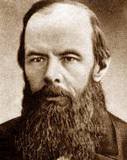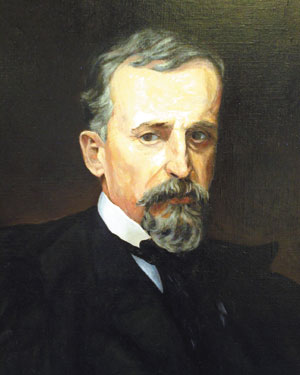Merged:
Szymon Tokarzewski on Fyodor Dostoyevsky fellow political prisoner of the TsarMany people reading Dostoyevsky's major novels, whilst knowing something about his life story, have, after gleaning the ultra-reactionary political outlook contained therein, asked themselves incredulously "How in the world was this writer ever a part of the Fourier inspired group of would be revolutionaries known as the Petrashevsky Circle?" Strangely enough a Polish political prisoner, locked up with Dostoyevsky in Omsk Siberia, had already asked himself the same question before those novels had even been written. The following is from the memoirs of Szymon Tokarzewski
In Siberian Prisons 1846-1857 (
Siedem lat katorgi 1846-1857) translated for The Sarmatian Review
How on earth could this man have ever entered any conspiracy? How could he have participated in any democratic movement? He was the vainest of the vain, and his vanity had to do with belonging to the privileged caste. How could he possibly desire freedom for the people if he accepted only one caste-the nobility, and regarded it as the only class that could lead the nation forward?
"Nobility," "nobleman," "I am a nobleman," "we noblemen" were constantly on his lips. Whenever he addressed us Poles and said "we noblemen," I interrupted him: "Excuse me, but I think that here [...]
ruf.rice.edu/~sarmatia/405/254tokar.html
A well known story, regarding Dostoyevsky's political about-face, claims that it was after his conviction for political crimes, but before his deportation to Siberia, when he was being subjected to a mock execution, as he stood waiting for the firing squad to kill him, that he changed his political outlook and learned to love Tsarist autocracy. This bizarre "Saul on the road to Damascus moment" has always seemed ridiculous to me, but it cannot be discounted that in the face of imminent death, when a person is really faced with himself, it is possible that he, despite being about to be shot on the orders of the Tsar, may have actually realized that he loved the Tsar and believed that the Tsar loved him too-- as Nietzsche wrote "One beats the dogs one loves best". However I feel that the following explanation from Tokarzewski is far more plausible:
So how did Dostoevsky become a conspirator? Probably he allowed himself to be carried away by a momentary impulse, just as sometimes, and also on impulse, he showed his deep regret that the waves of conspiracy carried him to the prison in Omsk. He hated us Poles, perhaps because his features and name betrayed a Polish ancestry.
So what do you, dear reader, think about both Tokarzewski's explanation, as well as his attribution of Polish ancestry to the renowned writer? Dostoyevsky's father was from the Ukraine and at least one person bearing the Polonized spelling of his surname, Dostojewski, lives in Poland today.

Polish physiognomy?







